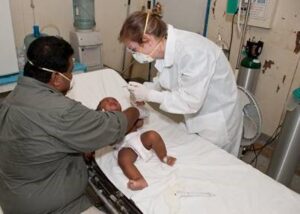Health Care Access & Affordability
Hilltop works to find innovative strategies for expanding access to affordable health care coverage and services with the goal of empowering consumers.
A new federal regulation on hospital price transparency requires hospitals to post their standard charges on their websites as well as the variations in prices for the same procedure or service. Using these data, Hilltop researchers are examining the level of compliance with the new regulation as well as variations in charges for the same procedure or service. See Featured Work section below for more information on a Hilltop study on discounted cash prices—those charges to patients who pay directly out of pocket for hospital services.
Maryland’s Total Cost of Care Model sets a per capita limit on Medicare total cost of care, and the state will eventually have total cost of care targets for Medicaid. The Model also specifies high-priority areas for advancing population health, including substance use disorder, diabetes, and hypertension. Hilltop developed a methodology for calculating and monitoring Medicaid total cost of care and conducts other analyses for Maryland Medicaid related to Model implementation and monitoring.
One of the metrics for Maryland’s Total Cost of Care Model is the 30-day all-cause readmission measure. Hilltop, in partnership with the University of Maryland School of Medicine’s Department of Emergency Medicine, received funding from the Robert Wood Johnson Foundation’s Health Data for Action program to develop and test a measure that assesses hospitals based on the frequency of downstream clinically relevant readmissions (DCRR) as opposed to a blanket 30-day all-cause readmission. The team used commercial health insurance data from the Health Care Cost Institute to develop the DCRR classification algorithm that identified key clinical and demographic predictors of a readmission and allowed for normalization of readmission measures across hospitals. The team is currently comparing the new model with the 30-day readmission measure for their ability to measure true quality effects.
Maryland is 1 of 13 states that operates its own health insurance marketplace. Since the passage of the Affordable Care Act in 2010, Hilltop has performed data analytics and policy analysis for the Maryland Health Benefit Exchange (MHBE), the entity responsible for Maryland Health Connection, the state’s marketplace. Issues examined include continuity of care, value-based insurance design, provider network standards, and strategies for market stabilization. Hilltop developed an out-of-pocket cost calculator for the Maryland Health Connection website to assist consumers with selecting health plans that best meet their estimated health care needs. Hilltop will be updating the calculator at least annually as new data become available. Hilltop is also assisting the MHBE with developing carrier reinsurance accountability reports, which will include data on the costs of the reinsurance program, as well as data on care management programs being implemented by the carriers.
For Maryland Medicaid, Hilltop conducts the annual evaluation of HealthChoice, Maryland’s managed care program that serves 1.2 million individuals with capitation payments totaling almost $6.5 billion annually. We also examine service utilization, costs, and outcomes for special programs or populations, such as the Community Health Pilots for home visiting services and assistance with community integration.
Staff Experts
Laura Spicer
Senior Director, Health Reform Studies
David Idala
Senior Director, Medicaid Policy Studies
For media inquiries, click here.



